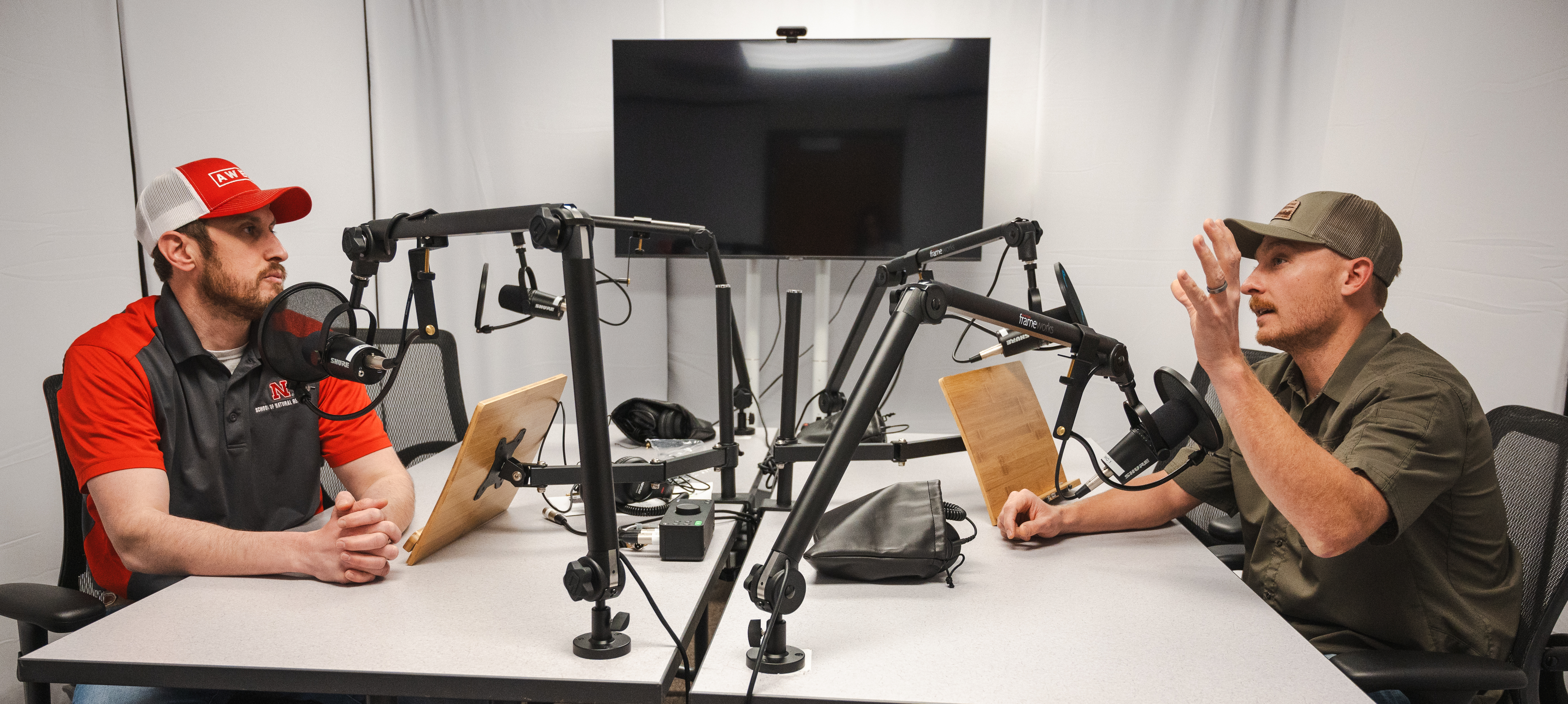
By Ronica Stromberg
Farmers have a new podcast they can listen to in their tractors, thanks to a Nebraska professor.
Andrew Little, a landscape and habitat management professor at the University of Nebraska-Lincoln, worked with Nathan Pflueger of Pheasants Forever and Iris McFarlin, a university communications specialist, to create the WildAg podcast launched May 6. The podcast combines wildlife conservation and agriculture and serves an audience of conservation professionals, landowners and researchers. In its first three months, it drew more than 1600 downloads.
“To me, it's kind of this idea of a broader extension platform,” Little said. “We're trying to broaden our perspective and being able to connect with people in a variety of ways.”
In the podcast, he and Pflueger discuss soil, water and wildlife with guests working in agriculture or conservation organizations. They plan to host the podcast’s first agricultural guest, a row crop farmer, soon in an episode about his experience restoring a wetland on his land.
The podcasters post a new WildAg episode online the first Monday of each month through the Natural Resources University network, YouTube and the AWESM lab website. The podcast is available on all major podcast streaming platforms.
McFarlin said more people are listening to it than watching it and recent episodes are showing an increase in downloads. She said the most popular episode so far was the fifth, about mountain lions. It came out in July shortly after the Nebraska Game and Parks Commission announced a 2025 hunting season on mountain lions.
In that episode, Sam Wilson of the Nebraska Game and Parks Commission and Jason Clark of the Nebraska Forest Service spoke about the mountain lions in Nebraska. Clark revealed that deer are local lions’ most popular dining choice but porcupines rank high too.
Little and Pflueger said they were surprised to see porcupines’ popularity in the lions’ diets and said they had learned a lot from WildAg guests.
“I have, without a doubt, learned new information on every episode we've recorded,” Pflueger said. “And I think it's important for landowners to know, especially, that just because we work in the conservation realm, doesn't mean we know everything conservation. We're learning right along with them, and that's our goal.”
Pflueger said he wanted to communicate through the WildAg podcast that science and research are always evolving. Research projects build off one another, he explained, but can have conflicting evidence or findings.
“I wanted to just bring it out and let people know that just because a research project happened, doesn't mean that that is just true all the time, everywhere,” he said. “Research is really dependent on where it's happening, when it's happening, and things like that.”
He encouraged people to continue seeking the most current information.
“Don't read one paper and then just take it as 100-percent truth,” he said.
Pflueger and Little said they would like landowners to suggest topics they’re interested in and email questions they have to wildagpodcast@gmail.com. The podcast is prerecorded, not live, so they are unable to take questions during it but will respond afterward to emails. They said they may also compile questions into a question-and-answer episode.
Little said he hopes the podcast will generate research questions, helping move the needle on research to address questions and challenges landowners have in adopting conservation.
The WildAg podcast is not shying away from tough topics, he said, but trying to find the balance between production and conservation in creating a healthier ecosystem for future generations.
“I think we just have to have those conversations, and maybe some of them are hard conversations,” he said. “And that's fine. I think that's the point. We want to tackle tough topics as this will help move the needle for conservation in agricultural landscapes.”
The episodes typically run an hour, and so far, most guests have come from Nebraska. McFarlin said they plan to bring in guests from other states, but already, they have seen downloads of the podcast in countries as far away as Sweden, South Africa and the Russian Federation.
Upcoming podcast topics are posted at https://awesmlab.unl.edu/wildag-podcast/.
“We're just covering such a diversity of topics that each topic isn't going to interest every landowner, and that's not necessarily the goal,” Pflueger said. “We just want to cast a wide net, cover a lot of good topics and just get people excited to listen in whenever they can or whenever they see something they're excited about.”